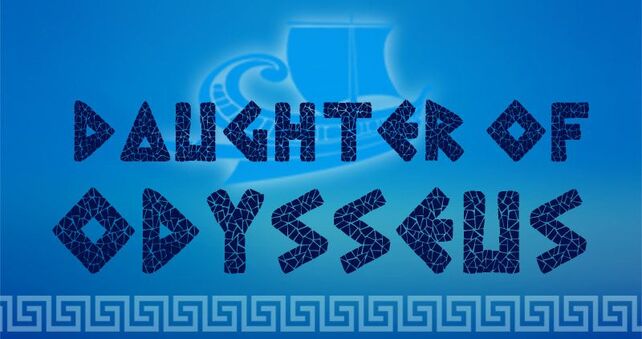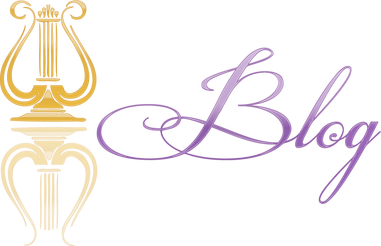 WHAT’S IN A TITLE? Ah. The book is called Daughter of Odysseus. Wasn’t he an ancient Greek hero? This sounds like an interesting book. I love ancient Greek history. Is it really about his daughter? It must be! I wonder what she is like? A strong woman like her father Odysseus? W. . .Wait. It starts off at a crowded bar in a city called Melbourne? In Australia? The land Down Under? But. . . Where’s Melbourne? And what is that bizarre song playing in the background? And who is this Christine? Is she the daughter of. . .wait? There is no Odysseus and her father, who is barely seen in the novel, comes across as weak and almost invisible. Hardly an Odysseus-like character. I’m confused. I’m disappointed. It is not what I expected. The title is misleading. WHY THE TITLE? It is said that titles are what helps determine whether your book will be read and whether it will grab a customer’s interest. And readers of my novel have commented that they wanted to read my book because they’re interested in Ancient Greece and well. . .it sounds like an interesting read because it is about a daughter of one of the greatest heroes of the Ancient World. Is the title misleading? Well no. Although it could be seen as misleading. Misleading for those who interpret the title literally. Why Daughter of Odysseus? Because Christine is the Daughter of Odysseus—spiritually and symbolically speaking. As I mentioned on my website: www.daughterofodysseus.com: Christine is based on me—of course, with lots of embellishments—and her story parallels my journey to the motherland and my attempts to establish my roots in the land of Plato and Leonidas. Gradually, after being exposed to the writings of Homer (again), I came to see Christine’s journey as similar to Odysseus’, in the sense that they were both searching for ‘home’ and had to fight to get to this home. Paralleling Christine with Odysseus came easily, and I relished creating a female character that could stand in line with Ancient Greek heroes in her sufferings and determinations and perseverance. Christine’s journey is Odysseus’ journey. The similarities, the imagery and symbolism from The Odyssey are subtly interwoven into the story. Both stories are about finding ‘home’ but they are more than that. They are both stories of hope over despair, of perseverance despite temptations and obstacles. There are adventures and the joys of love, of needing to belong and a yearning to escape the mundane. They are stories about seeking companionship and understanding; of the need to tell stories within stories. There are monsters and witches. Odysseus’ Cyclopes becomes an uncle who is akin to the brute beast. Circe is like her aunt in the village who practices magic and casts spells, it seems, upon Christine. The villagers, in all, become a type of Laistrygonians—those cannibal-like creatures that tormented Odysseus and his men. The people of the nation, in general, are like the suitors in Odysseus’ palace who treat the owner like a beggar in rags. For Christine is too like a beggar in many ways, pleading to eat just the crumbs from the table of these Greeks surrounded by culture and history and paradise. The story of the Wind King who gives Odysseus and his men a bag of wind that is sealed, only to be opened by the selfish men, letting loose all the winds from hell, is also interwove into the story: A can crashed against the side of her window, frightening her into submission. The cool breeze of that morning had transformed, for just a moment, into a violent bluster, as if all the winds were let loose and steering Christine back to more trouble and heartache. The bag had been slashed open. The bag, that which contained all the winds of hell, the hurricanes and the rough gales, now lay limply by her feet. The west wind, with its sweet tranquillity and warm breath, disappeared. Who had opened it? Was it that lack of wisdom, of prudence, that led her precisely to this dilemma? Her illusions, her succumbing to temptation? Her lack of discernment towards the people around her? What was steering her away from her destination? Christine wanted to fling her arms up in despair. Clutch at the door handle and flee from the car. From the stormy billows blowing her back violently to a people she thought were her solace and protection. To a people who looked at her with scorn; as a plague and a curse. Who would so easily declare without mercy: Take yourself away from us, your creeping thing; you who the gods detest, who even the sweet west wind Zephyrus abandons with haste. Leave at once, for your voyage here is cursed by the heavens themselves. (Daughter of Odysseus: Ithaka Found?) And there is Ithaka. The destination. The goal for both characters. Odysseus’ Ithaka exists; it is an island in the Ionian Sea with beautiful beaches and a palace and ships and all the glories of island life. Christine’s Ithaka exists, albeit symbolically. Greece, initially, is the physical place that becomes her destination, the nation that will fill the void in her empty existence. But, as reality sets in, when she realises that the ‘grass is not always greener on the other side,’ what Ithaka is transforms. It becomes something loftier, taking on a philosophical and spiritual dimension, as Christine begins to realise at the end of her stay in Greece: And there I can see Ithaka--there--in some intangible distance. That which symbolises home. . .life. . .that which truly belongs to me. This suppliant, this outcast. I grab it, but it slips through my fingers again and again. . .crumbling to dust. . . And she learns, like Odysseus, that it is the journey that matters—not the destination. For Odysseus, our hero, what was important were precisely those years of wandering that tormented him, but that enabled him to transform and be transformed—to grow and reason, to develop and mature, to experiences every iota of one’s senses and intellect. Not the journey. Not Ithaka. For that is the end. That is where one becomes stunted and eventually dies. No; one must pray for a long journey—a journey that always begins and ends but begins again; a journey where you learn with every strength of your being. A journey that intoxicates you with the mysteries of life and the depth of human and divine wisdom. . . Ithaka gave you the marvellous journey. Without her you wouldn't have set out. She has nothing left to give you now. And if you find her poor, Ithaka won’t have fooled you. Wise as you will have become, so full of experience, you’ll have understood by then what these Ithakas mean. (Ithaka by Cavafy)
0 Comments
Leave a Reply. |
To find out more about me, go to 'About'. You can also follow me on Facebook: Archives
December 2022
Categories |

 RSS Feed
RSS Feed